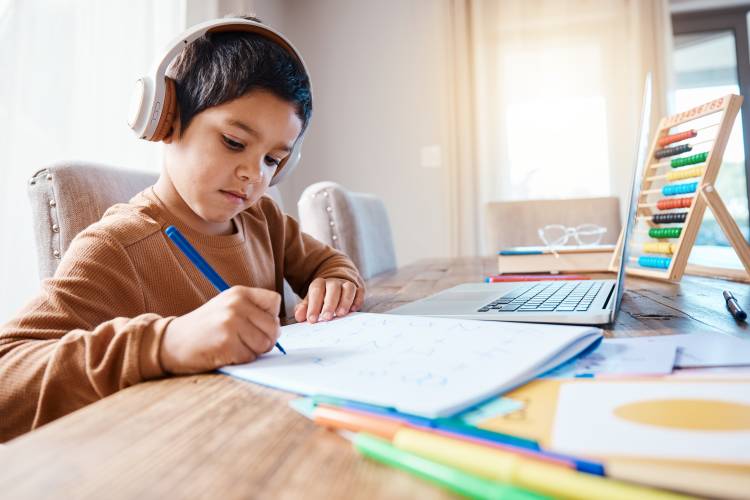Attention deficit in children: how to manage it
Do you know how to manage attention deficit in children? It is possible to work on this aspect and help them so it doesn’t become a problem.
child care
Share

Attention is a mental ability that enables us to process information and includes external and internal stimulation, thought and memory. Maintaining good attention is essential to the learning process.
What causes attention deficit in children?
Many children have a short attention span, they are easily distracted and have problems following instructions or keeping still. The high number of stimuli and new information that children receive in the digital era leads to a significant lack of focus and reduction in concentration and, it can even lead to problems of stress. For that reason, learning to maintain attention and select a specific stimulus from all of those surrounding them becomes a difficult task for families and teachers.
The intrusion of new technologies also influences the child’s attention span, as used to happen with the television in the past. A mobile phone is sometimes used as a strategy to distract children: when they finish their meal, to calm them down or when getting dressed. With these techniques, the brain learns that, when you need to concentrate or focus, you have permission to be distracted.

Techniques to manage attention in children
- Surprise and curiosity: everything new captures children’s attention for 15 minutes or more, but in circumstances where they are hungry, tired, ill or have a physiological need, distraction ensues much more quickly.
- Non-routine: children tend to switch off if they know what is going to happen.
- Sharing moments of play: playing with them motivates children to find fun beyond screen time. Memory games, ordering games, following sequences or completing tasks in a specific time stimulate attention.
- Cooperation: brains are much more active when they are working with others, interconnected.
- Humour: the brain relaxes, a positive socio-emotional atmosphere is generated and attention is renewed.
Tips to avoid distractions
- Only have the essentials in the study room. Electronic devices, video games, mobile phones....will be kept out of the way when doing daily homework, and the space will be clean and tidy, with good ventilation and light.
- Set aside a period of time for each activity or task, and which isn’t too long, so they can create mental routines of attention and concentration.
- Getting enough sleep for their age, given that tiredness is not a good ally for a good attention span.
- Defining our children's tasks and obligations regularly: what they need to do, how they need to do it and make a list of all of this.
- Detect the time of day at which the child concentrates more easily, so that is when they do the tasks that require the most attention.
- Balanced diet, since a good diet is fundamental for tackling the day, with foods that are rich in phosphorus, Omega 3 fatty acids and calcium.
- Mindfulness exercises, focussing on the present and the current activity. Nowadays, our mind is immersed in environments full of noise and hurrying, we are permanently worried, unable to concentrate and anxious, so emotional calm is necessary from a young age.






